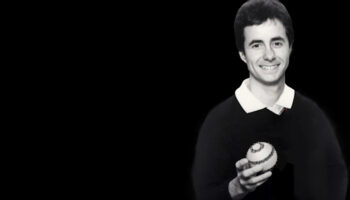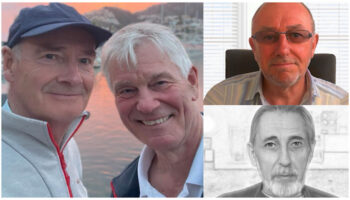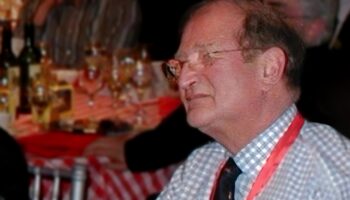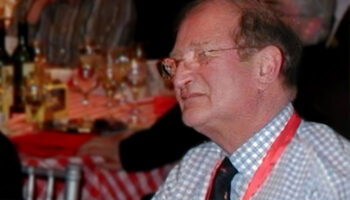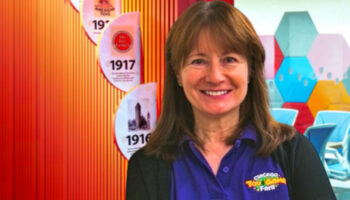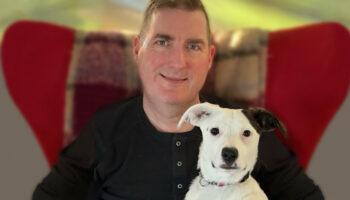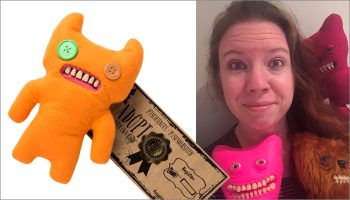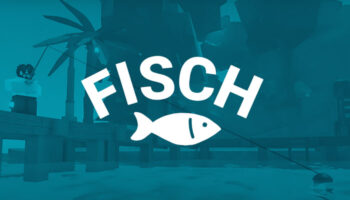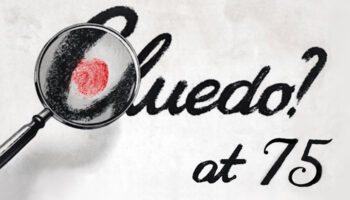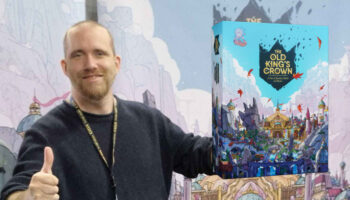“My career was built on a joke!” A candid chat with former Hasbro inventor relations titan Mike Hirtle

Alright, here we go… Thanks again for doing this, Mike; you may not believe it but – this is true – your name has been on a list of people to interview at Mojo Nation since almost day one…
Really?
Really! Just one of those names that comes up all the time, with affection, respect and well wishes. So, look – before we started recording, I was set to do this very interview much as you’d expect… Focusing on which toys or games have your fingerprints on, you know?
Right…
But you said something – and I can’t remember what it was – that made me think that, with you, the inventions might very much be secondary. That it’s not INVENTOR relations to you; it’s inventor RELATIONS… You seem to be much more focused on the people. Is that accurate?
I think that’s probably true, yeah. I mean, I’ve been involved in so many products, but when I look back on my career, you’re right. It’s the people and the relationships I remember. They stand out for me rather than the products. I don’t know if I can point to any one thing that’s been an enormous hit that I did myself. I didn’t do anything myself! I mean, it’s all a team of people and I was part of the team. A cog – sometimes a big cog. But, you know, um, I didn’t do anything myself.
Well, look… Don’t undersell it! We’ve still got to talk!
Ha!
But let’s start with the end, then, and then chat through your career; see what comes up… Because I find that interesting; that if one’s too focused on the inventions it might be at the expense of the relationships – but if you focus on the relationships, you’re still likely to find the inventions.
That’s… Ha! You know, it’s much, much more that way round for me. That’s the way I see it.
So what qualities do you think, Mike, makes for a good inventor relations person? What qualities is it that you had that made you good at this?
That’s a good question and, you know, I think I’m qualified to answer it because I’ve been on both sides of the table. As we’ll discuss later, I’ve been an inventor, and I’ve done inventor relations. And the thing that I think you need to have is enthusiasm.

And not just an enthusiasm for the product…
Right. Enthusiasm for the product, enthusiasm for the people and enthusiasm about what you’re doing. You have to love toys and games and you have to see the potential. Mike Myers was probably the best in the business! I learned a lot from him. You also have to be a bit of a kid, of course, and get excited about what you’re dealing with. Although, there were times when that counted against me…
Oh?
I remember one time – and this is when I was at Milton Bradley… I took my boss, Dale Siswick, the Senior Vice president of R&D for Milton Bradley, to visit the guys at BMT – now Big Monster Toys. Dale’s boss – the President of Games – Dave Wilson, said he’d come along too. He really wanted to meet the BMT guys ’cos he’d heard so much about them.
Well, Dave was a heavyweight; kind of an imposing guy. But we all sat down at the table, and BMT start pitching. Of course, they put on a great show because they got Dave Wilson there. Holy shit! They’re gonna make the best presentation they’ve ever done. And these guys are so good, right? They’re, they’re head and shoulders above everybody else at that time… So they bring out maybe 15 concepts. And I’m like a kid in a candy store!
13 of them we’re really, really strong. So I’m filling out the form for each one of ’em, and I’m checking them off, oblivious: send, send, send, send, send… Well, my boss told me afterwards that Dave had said to him, “You know, this Hirtle guy. He just likes EVERYTHING… I don’t think he’s selective enough.”Ha!

Ha!
But if he’d gone to a typical inventor meeting, we would’ve seen a lot more of the mundane stuff! And, you know: pass, pass, pass, Mercy Take, pass, pass, pass…
Mercy Take, did you say?
Oh, yeah; I’ll take this one – ’cos I can’t pass on everything!
Mercy Take! Ha! I’ve not had one of those… I see no mercy! So you were always enthusiastic, and you’d do the occasional Mercy Take. Anything else?
No, I just always tried to be encouraging. And that isn’t always easy… I lost count of the number of times when I was being shown an item and thinking, “Oh my God! What a piece of crap!” But I could NEVER bring myself to say that. I’d always try to find SOMETHING to be enthusiastic about before I said no.
And ultimately, Mike, why NOT say that? Even if it’s a brutal truth, it might help?
I think it’s a human nature thing. I want to encourage people. Then again, on the other side of that coin there’s the fact that I’m not always right. I’ll give you an example… When I was at Tyco, we passed on Pound Puppies.
No?!
Yes! I thought it was a stupid idea. And after I saw Cabbage Patch, I said, “That’s the most ugly doll I’ve ever seen. Nobody’s going to buy that; no one wants a doll that’s homely!”
Ha! Oh my God, Mike!
Another example… I bought Pokémon to the States. But quite honestly, I didn’t think it was going to sell! I just thought it was the stupidest thing, but because it was a phenomenon in Japan, I thought we had to take a look at it.

Wow.
So I tend not to say, “That’s terrible. That’s horrible. That’s useless.” Because two years from now it could be a big hit. And for me, it’s so much easier to be encouraging and positive… It’s only with hindsight I sometimes look back and think, I could’ve saved a lot of people of time and money if I’d be more direct.
So funny. And actually, I jotted down some numbers you gave on an interview you did – this is a few years ago… And only rough, of course – but when you’re at Hasbro, you probably looked at 1,600 concepts a year. You rejected about two thirds of those pretty much immediately… Brought 500 into Hasbro a year. 300 of those then got culled. That leaves 200 that you were really looking at. Maybe one in 10 of those had something going for it. 10 to 25 you licensed or optioned. 15 got to market. One of them would be a huge success – if you were lucky.
Sounds about right. Did you get those figures from Tanya Thompson?
Oh, no… Sorry – I should’ve been more clear! YOU said that in a podcast interview a couple of years ago.
Oh! Right! And to give that some context, a lot of inventors used to tell me that for every one idea they showed me, they’d probably had another 10 or so that they themselves rejected. It’s a lot of ideas, right? A lot of ideas; it’s a thirsty industry. And actually, that can wear on you over time.
I can well imagine. Let’s move onto the I.D.I.O.T. Award, Mike, that’s why we’ve finally got round to speaking with you. My understanding is that you and your Hasbro partner in crime, Mike Gray, both won it. What did that mean to you? In terms of two Americans winning this award over at London Toy Fair?
Well, here’s the thing about the London Toy Fair… The Fair itself wasn’t, for me, that important an event, but there were enough inventors in the UK to justify a trip over there once or twice a year. But at the Fair itself, the Inventor Dinner was the big draw. That’s why I went. And certainly to people who are in the business, the I.D.I.O.T. Award means a lot.

And I’ve got to say: I went back and looked over that list of I.D.I.O.T.S. to prepare for this conversation – there’s a lot of folks on there, and I know virtually all of them… But it’s a pretty impressive group of people!
Tell me! It’s a phenomenal group of people! And when you won, did you win it at the same time as Mike Gray?
Yes. And that was my idea too, as I recall!
It was your idea?! Wait a minute!
Well, no! It’s because I was talking to Mary Danby. I joked with her; I said, “Dammit, Mary, I should be an I.D.I.O.T.!” And she said, “Yeah, I think so too. But you know, we can never decide whether we should give it to you or Mike Gray.” And I said, “Well, give it to both of us, dammit.” Ha! And I was only kidding, but that’s exactly what they did… We both won it the same year. It was really memorable because it was in the Winston Churchill War Rooms that year.
Oh, great venue! And all joking aside, when you did get the award, you – presumably – didn’t know it was coming?
Oh, that’s a great question! No! I mean, you know, kind of early on in the introduction… You catch on. But no, I didn’t know that I was getting it. But, you know, I really coveted that thing! I went to these dinners for years thinking they’re giving it to that guy and I haven’t got one yet?!
Ha! I like that you use the word coveted, there… It’s kind of reverent. And how did you feel when you won it?
Oh, I was… I felt great! I really did. And I still have it; I still have the little medallion and the cup in my office at home. It’s on display. I’m very, very proud of it; very pleased to, to be recognised with that.

And this would have been while you’re at Hasbro, presumably. Well! Let’s not start there. Let’s go back, Mike… I’d love to hear your background; your education how are you got into the industry, where he works… All of that! If you’ve got time, of course?
I’ve got time! And I think it’s a super story, if I do say so myself! So, alright… I was born in Nova Scotia, Canada, in 1950 – brought up in Montreal. And when I was 12 years old, my dad moved the family to Detroit, Michigan, USA – the week of the Cuban Missile Crisis.
No way!
Yes! So, that was memorable. “Dad, what’re you doing? You’re gonna get us blown up…” Anyway, I’m in the United States and I’m going to school.
We moved from Detroit to Washington, DC and I was in high school in the Washington DC area, graduating in 1968. So if you think back, the moon landing was going on; the space race was the big news. And I was so fascinated by that.
Of course!
I just loved all that, you know, and I’m watching all this as a kid in high school and thinking, wow… And I was really good in, in science, math and physics. So I’m thinking I’m gonna become an aerospace engineer! So I went to the University of Maryland right down the road, easily got accepted, right?
Easily?
Oh, yeah; in those days, anybody who graduated from a Maryland high school and could fog a mirror got into University of Maryland…
Ha! No; modesty aside, Mike, I’m told you are super smart…
Well, I don’t know… But I’m studying aerospace engineering and doing okay. And I don’t know if you know, but the first two years of any engineering course is all the same. You just study the basic craft. Then, when you get to specialise and focus, you find out – you know, gee – aerospace engineering isn’t really that much fun because the systems are so huge.
In what way, sorry?
You know, you’re working on an airplane, but you’re working on a bolt that holds the landing gear. Nobody works on the whole plane! So I’m getting a little disillusioned with aerospace. But worse than that, the whole aerospace industry was heading into the toilet because – the summer of my freshman year – they landed on the moon. That was great! Then they did the subsequent landings… Well, by the time I graduated, it was all coming to an end. It was like, “Okay, we’re done with the moon; been there, done that.”

Right! “It’s a lot of rock… Why do we need to go back?”
Right? “Why do we have all these engineers around? Let’s get rid of these guys.” And fortunately, the war in Vietnam was ending too. So a lot of the defence work was drying up. So it was the most horrible depression for aerospace engineering ever seen… On top of that, I was a Canadian citizen, which made it worse. So here I am, trying to get a job. No luck. Terrible.
Anyway, in my senior year, I was super lucky to be assigned as a gopher for a distinguished visiting professor who was a guy named Holt Ashley, who came from Stanford University. He was doing something in DC… That’s why he came to a – shall we say – less prestigious school likeMaryland. But we struck up a great relationship. And he suggested applying to Stanford to grad school, cos I figure I’m gonna have to go to grad school or I’ll be working at McDonald’s. So, I said to him, “I don’t think I could get into Stanford – but if I did, I couldn’t afford it. You know, I’m not a very wealthy person!”
Okay…
He said, “Well, why don’t you give it a try?” And he kept kind of bugging me and then the light bulb went off finally. I finally think, ‘Hey, this guy’s the chairman of the department at Stanford. Maybe he’s got some influence…’ So I applied to Stanford. Not only do I get in, they offered me a teaching assistantship. So my tuition is paid, and I get a salary to go there. So, wow. Duh!
You didn’t pick up on the hint right away?
No! I guess in some ways I’m not that smart, right? So I go to Stanford, two years there. The aerospace industry opens back up quite a bit… And I got the dream job offer when I graduated. I got my master’s at Stanford. I got an offer from Boeing, to go to Seattle to design commercial airplanes; to be on the ground level of the 777; the so-called Triple Seven. They called it the Wide Body Twin project. And I was gonna enter that, and that would’ve been great.

So I went to the placement office at Stanford and as I’m walking by, I see this big poster on the wall. It was from a company that was coming the next day looking for a master’s degree mechanical engineer – which is very close to aerospace, to be a toy and game inventor.
You just spot a poster on the wall? In passing?
Right. It caught my eye ’cos it was a big red circle with Mattel written across it. I’d heard of Mattel and I thought it might be kind of cool. But, you know, I didn’t take it seriously – ’cos I’m going to Seattle, you know? But I thought I’d check it out; sign up for this interview – just as a joke; a total joke. I took the last slot in the day, which is kind of fortunate. So I go in to meet this young guy… And we’re talking, and I’m under no pressure because I’ve already got my dream job…
Ha! This is unbelievable!
And he says, “You know, I think you’d fit in great. I think you’ll really love Gene Kilroy, the guy down there that runs the Wheels and Wings group. I wanna fly you down to LA to meet the team…” So now I’m thinking, “Uh-oh! I don’t wanna steal your money, ’cos I’m not gonna work for Mattel…” Idiotic. Idiotic, right? So I’m thinking, well, all right, it’s a free airplane ride. What have I got to lose? What the hell?
So I go to LA and meet this Gene Kilroy, who turns out to be an aerospace engineer – he’d worked at Northrop, I think, for several years and hated it… Then got into Mattel and loved it! So naturally we hit it off.
And this is quite informal, presumably? He’s not offering you a job as such?
Well, yeah, we’re just having a great time. And again, no pressure. He brings the boss in – Dennis Bosley, who is the head of preliminary design. Back in those days, Mattel didn’t really entertain inventors. They invented everything themselves. They had like 200 people working in this fabulous preliminary design group. So they said to me at the end, they said, you know, we think you’d be great. We think you’d be really a strong part of our team here. And we want to talk it over with the people you met today, and we’ll get back to you.
Uh-oh…
Right? I said, “Nah, that’s not gonna work for me. But listen, I’m really intrigued… I think this would be kind of cool. And, and if you made me a reasonable offer today, I think I’d accept.” So they leave the room, come back in, they say, “Okay! We’d like to offer you a job. Preliminary design engineer. $13,000 a year. Now, the job, the offer from Boeing – this is a long time ago, remember – was $13,500. If I’d been just a little bit smarter, I would’ve said, “Make it 13 five and I’m in! But I just said okay and shook hands with them. And 48 years later, I’m still in the toy business!”

My God! You’ve done nearly 50 years in the industry? Built your whole career on a joke; a sort of suck it and see attitude?
Absolutely. Absolutely, absolutely.
I just find that absolutely staggering. So you got into Mattel – but you weren’t there long?
Correct. I worked there for almost three years – and I loved Mattel. I loved what I was doing. I loved the toy business… I loved inventing. I invented this rocket launcher, which was great fun… We were shooting foam rockets across the San Diego Freeway from the roof of the building. Beautiful. Anyway, it was great. But I hated LA; I just I couldn’t live there. It just wasn’t for me. Remember, I’m from Nova Scotia!
Is that partly to do with the weather?
Yeah. No seasons! You didn’t get the winter; I love winter. Yeah. So I sent my resume around and my career has been just wonderful luck. And I have great macro luck; terrible micro luck, you know?
Erm… I’m not sure I do know! How do you mean?
Macro luck – my career; whole thing’s been great. Micro luck… If I get it in a line at the bank, it’s the one that stops moving. Guaranteed.
Got it. Big decisions: terrific!
Right. Big decisions that I’ve made have really have paid off. Anyway, I got this offer from Fisher-Price – owned by Quaker Oats at that time. Around then – mid-seventies – we were really entering the age of electronics in toys… Atari came along, and then, if you remember, Starbird and Simon and that kind of, you know, beep-beep-boppy stuff.
I do remember, yes.
It was really, really popular. And Fisher-Price was looking at electronics – very profitable and wonderful, but back then they basically made little wooden pull toys. The worry was they were gonna be left in the dirt because everyone thought the age of the rubber ball had ended! Everything was gonna be electronics now, so they needed to get some more technical people. So they looked around and said, “Hey, this guy Mike Hirtle!” – even though I didn’t know that much about electronics… But I was an aerospace engineer from Stanford, working on the West Coast, so that was pretty attractive.
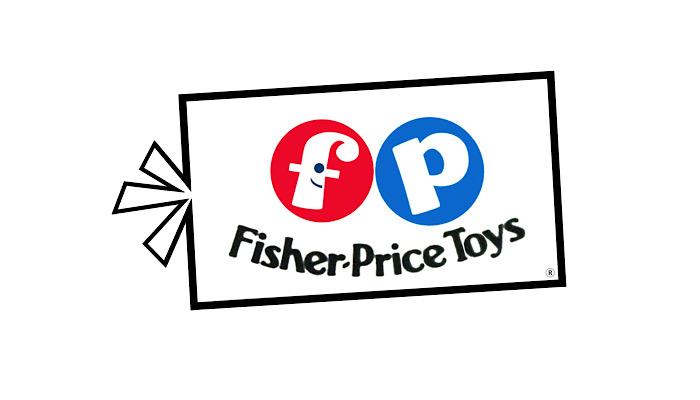
How long were you at Fisher-Price?
I was there for five years and it was fun! Hard work back then; it was hard to move them from pull toys into the space age. And then – of course – we found out that not EVERYTHING is gonna be electronic; that the age of the rubber ball hasn’t ended…
No; it’s bounced back!
Ha! It bounced back; right! Ha! So I had a lot of fun at Fisher-Price. The thing that I’m most proud of was creating that team. I hired a bunch of people. We made a lab, we had a workshop, and I made the capability to do great stuff. And we did a doll called Baby Soft Sounds, which was the first electronic talking doll, I think in the whole industry.
Baby Soft Sounds?
Right. It was a wonderful design. We used custom integrated circuits, which was all new. The electronics guys were in Ottawa, so we were back and forth a bit, but it was a great product. I’m very proud of it ’cos it was a realachievement at the time.

And your time at Fisher Price came to an end in ’82?
Right. Five years I was there; ’77 to ’82. Then I went over to Tyco.
Tyco! My God; your CV’s incredible!
Well, this is the hot part of my career. So, Fisher-Price was fun, but kind of hard to prod in the right direction. Then there’s this new opportunity, with a sleepy little electric-train company down in New Jersey called Mantua Metal Products, originally. Then it became Tyco. They were doing electric trains, slot car sets and a new line called US-1 Electric Trucking – basically just trucks on a slot-car track. And they were going out of business because they were trying to sell railroad sets and slot car sets to boys for around $35-40…
Well, a boy that had $40 back then didn’t want a train! He wanted space invaders. So Tyco was having trouble, they were losing money. That’s when I met the president of Tyco, a guy named Dick Gray – brilliant guy! Oh my God! Smartest guy I ever worked for. And he knew they had to branch out, or end up as a parking lot in New Jersey! They didn’t really have an R&D department… What they did back then was look at what Aurora was doing and copy it – but often doing it better.
Oh! And that’s The Aurora Plastics Corporation?
Right. Because Aurora was a little bit further advanced in slot cars. But if Tyco was going to expand into other things, they needed somebody to create an R&D department. How about me?! So I go to Tyco. And that was an amazing time. I was there 11 years. Tyco’s business grew 30% a year through those years. We went from about 40-45 million – and losing money – to 760 million and making a ton of money. Now, of course, it wasn’t all me! But what a tremendous experience. Wow. We went nuts.

That kind of growth must’ve been incredibly challenging…
Yes, but I enjoyed the challenge. And the biggest challenge, I think, was that you never had enough people to do the job. We never had enough resources ’cos we were growing so fast. I’d put my budget in and the chief of finance was, you know, “How many pencils do you really need?” “I’m gonna need 60 pencils.” No, no. You can only have 40.” And then we’d end up buying 300 because we were growing so fast! As soon as the budget got done, it got put it in a drawer and off we went. But it was just tremendously exciting. And the the number of products that I worked on there – too many to count really.
Anything particularly memorable?
One odd thing we did was telephones of all things! When telephones got deregulated, Dick Gray figured kids were gonna wanna buy phones that looked like other toy-like things. So we did a line of three: an NFL football, a Knight Rider car and Garfield the Cat. When we went to market, we couldn’t give away the football and the car! Ha! But Garfield was selling like crazy. And then we did the research and realised – obviously – that it wasn’t kids that were wanting to buy phones. It was adult women buying Garfield!
It’s interesting that there was no market research; just a ‘go-with-the-gut’…
Yeah. Early on, Tyco was so small and fast moving. You could pretty much get the whole company around one conference table. I remember, in one meeting, Dick Gray introducing us to the inventor of a ballerina doll. It kicks out its leg and spins around… And Dick says to this table full of guys – that make slot cars and racing trucks – “Do you think little girls are gonna like this?” And we’re like, “Maybe! Who the hell here knows?!”
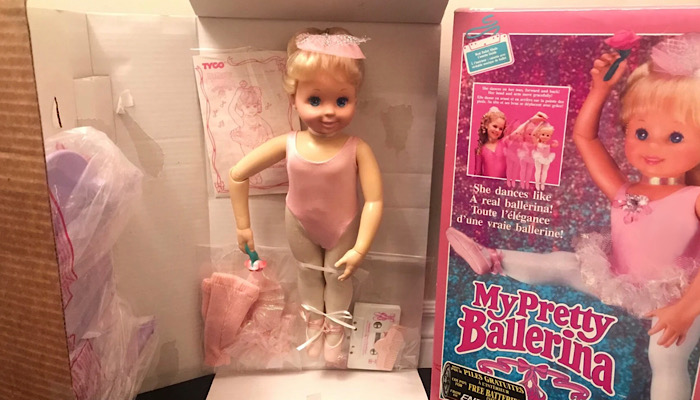
But Dick just says, “We’re gonna make it!” – and hands it to me! Well, I’ve never done a doll… So we had to learn everything about it: rotocast heads, rooting, grooming, face painting, sewing the costume – all kinds of crap. We got it on the market in fory-five weeks. We called it My Pretty Ballerina. It was so cool; just wonderful.
Sounds like an incredibly exciting time.
Yeah – but, you know, after 11 years of it, I kind of got exhausted. It also got a little too big. When Tyco was 300 million to 350 million dollars, say, it was small enough that we could still be one little team. Even though, we were growing like crazy, we could all still kinda manage together. When we got up to 700 million, it was too big a company for one person to really, manage. So Dick had to bring in a lot of people to delegate to. And some weren’t as smart as he was, and the fun of it got strained quite a bit when it got bigger.
We also weren’t able to be as agile, so the air kind of went outta that balloon. I guess I was ready for a change when I got a phone call from Tom Kremer, founder of Seven Towns. I’d met Tom while I was at Tyco; we worked on a Seven Towns project. Anyway, they had this guy named David Berko working for them; another I.D.I.O.T.
He wanted to move on, so David Berko and I kind of swapped places! He was at Seven Towns as their US guy. He got a job at Tyco – not my exact job, but he got a VP job at Tyco… I went from a VP at Tyco to Seven Towns to be their US guy. That was an interesting five years I spent five years working for Seven Towns as an inventor.
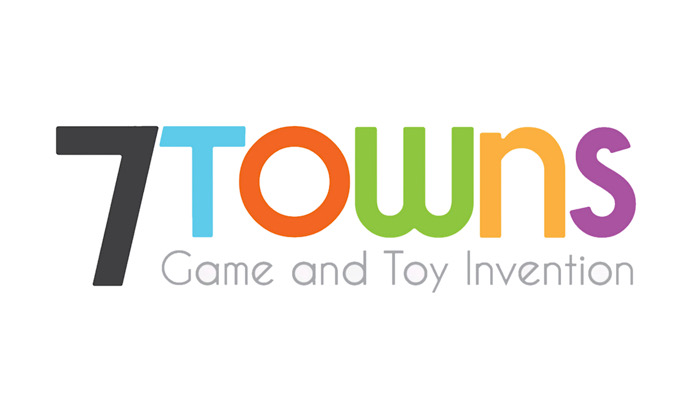
Interesting. And how did you find the inventing world?
It was so, so interesting. I learned a huge amount. I don’t think we didn’t have any big hits; we weren’t tremendously successful at that time and I found that I didn’t particularly enjoy being a salesman. The inventor life is so tough; it’s hard. And I just don’t feel that I do a very job in pitching ideas – in spite of the fact that I got to watch Tom Kremer doing it. He was amazingly good. I learned a lot, but…
Sorry – just to clarify: Tom Kremer taught you how to do it really well, but you weren’t very good at it?
Ha! Yeah! I didn’t learn it very well! You know, I’d go and pitch something and somebody would reject it; they’d give me the reasons for the rejection. And I’d take that to heart and I’d think, “You know what? You’re making a lot of sense here… I guess this is not as good an idea as I thought it was…”
Ha! Alright… I was confused, but you’ve cleared that up! Funny!
Right? Well, Tom, didn’t have that problem; it wouldn’t bother him. He could take the dustiest, oldest, most horrible piece of crap out of a box, something everybody in the entire industry had passed on for good reason… And he’d set it up and make you think this was the greatest thing that had ever been created. And people would just be champing at the bit to take it in! Then they’d take it away to think about it, and talk to other people and they’d realise, “No, this is not as good as we thought!” Because he was so, so talented. I just couldn’t do that.
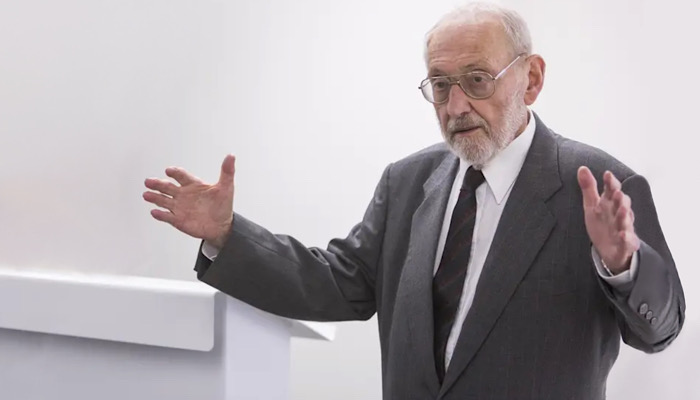
Wow. Out of interest then, Mike – difficult question – do you know quite how Tom did that? What was the secret sauce in the way he presented something?
He could get in your head. He was an artist. You know, I think his background was in philosophy. He just understood people, and he just knew how to motivate people. And he was a very, very smart guy. So anyway, I was five years at Seven Towns being an inventor, traveling around the US trying to sell ideas. But it was hard work and I didn’t love it. So, again: I said I’ve had great macro luck… Here’s another example, because something wonderful happened… I got to work on games!
Because you’d been mostly toys up to now?
Right. But I did love the game business… When I was a Tyco, we acquired Ideal and we got all of their classic games like Kerplunk. I just really liked the gamers. So I always had wanted to work in the game industry. Now, at this time, Hasbro, announced they were gonna combine Parker Brothers and Milton Bradley into one Games Center of Excellence, I think is what they call it. That meant shutting down Milton Bradley, which was in Springfield, Massachusetts.
Close the Milton Bradley office…
Close the Milton Bradley office, move everybody to Beverly, Massachusetts –originally Salem. They had this big, beautiful office in Beverly and we’re gonna put all the people from the games division into Beverly, in the Boston area. Okay? But that meant a lot of people from Western Massachusetts didn’t wanna move… And one of the people that didn’t wanna move was Ron Weingartner. I don’t think he won an I.D.I.OT. He should be one! He’s a wonderful guy; Do you know Ron?

I’ve interviewed Ron! I’ll put a link in here to that. And funnily enough, he was kind enough to introduce me to Mike Meyers recently for a piece that we did with him! And I’ll put a link in for that here! So yes!
Oh, okay. Wow. You’ve been busy! So, anyway Ron announces he’s not gonna make the move, and that creates an opening for Inventor Relations for games. I just said, “Oh, boy! That’s what I want to do.” So I went up there, interviewed: perfect job for me. So I got hired and I became the inventor relations guy for Hasbro games.
That was the dream job. I just loved the heck out of that. I joined them up in the Boston area. And I should say that, around that time, there was a lot of political stuff going on; some new management, and after less than two years, they moved the offices back to Western Massachusetts – difficult times for a lot of people. And we lost a lot of quality people.
Did you make the move back?
Sure. I was mobile; I didn’t have kids living with me at the time. Anyway, the job I enjoyed. And now I’m the guy that’s paid to travel around the world to look for new games. Dream job! And that’s when I met Mike Meyers, Great guy. He used to be the Head of Design for Milton Bradley. He’d retired, but they retained him as a consultant mostly to manage the relationships with Japan. That meant I got to travel to Japan four times a year with Mike Meyers as my mentor.
I didn’t realise you worked so closely with Mike Meyers. So there we’re three Mikes all in the Hasbro mix at that time?
Yes, the Mikes, all interconnected and interrelated… Mike Hirtle, Mike Meyers, and Mike Gray.
Sounds like a firm of solicitors: Hirtle, Meyers and Gray
Ha! Yeah, yeah! We’re gonna set up great new careers! Ha! So there you are. I’ve had the good luck to be involved with some really, really smart people in my career. You know, Tom Kremer, Dick Gray… And Mike Meyers is another one. I learnt a lot from him.
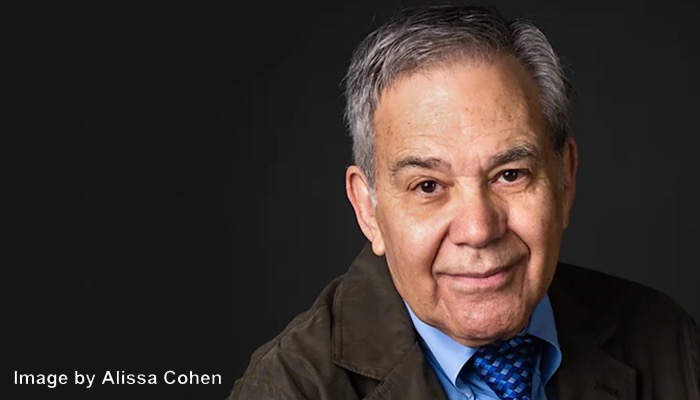
And on one of these trips to Japan, presumably, you encounter Pokémon? Right! And as I said, I didn’t foresee that it was gonna be a big success ’cos I thought it was very foreign. Ha! And you know, we had really good relationships with a lot of the Japanese companies. Another one of the significant things I did there was to engineer a deal between Sony and Hasbro to create a kind of virtual reality game for the PS3, think it was. It used cards… A camera would focus on a card. You’d look at the screen of the TV and the creature that was on the card would grow out of it.
Out of the card? Like… Really early virtual reality?
Right. Very early days… Eye of Judgement, I think that was called. Anyway, like I say, I love games, and the games people at Hasbro were great. But after I got promoted, I was in charge of the whole corporate acquisition system down in Rhode Island… Hasbro Toy was huge. And it wasn’t… I don’t know – it’s hard to describe. I wasn’t getting any younger, and it just wasn’t as much fun anymore. So yeah. After a couple of years, I figured it was time to retire.
Well, I was going to ask you about that, Mike, because you use the word retired when we were setting this up… But I couldn’t help but notice – almost immediately you came online – that you, like all engineers, still have a pocket full of pens.
Hahahahaha!
I’m kind of not buying what you’re selling, there! I might believe you were retired if I hadn’t seen them…
Hahaha!
So what’s keeping you busy now?
Well, yeah. I retired… But I missed it immediately. I missed traveling around the world, meeting inventors. Doing that job was so wonderful. I thought there must be a way to keep doing that. And the greatest thing that I ever invented in my career was the job I did for a few years after I left Hasbro…
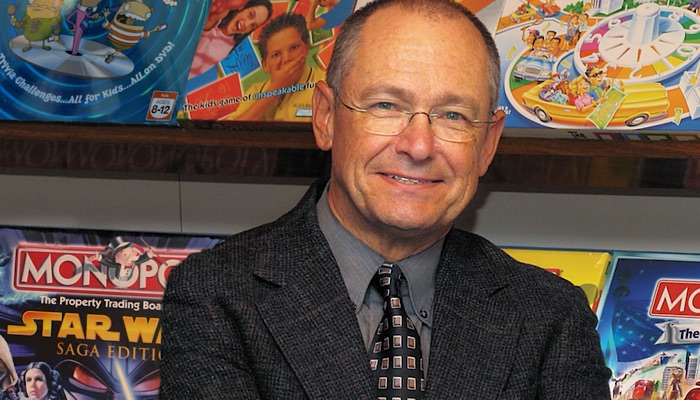
Oh?
I created my own company called Paladin. I figured I’m going to get companies that I know and love – smaller companies – and I’m gonna travel around the world and look for ideas for them. I’m gonna pitch the ideas. I’ll be a representative of the inventors who don’t have the money to go to Europe, you know, for example, or travel around. So here’s the scheme. I’m gonna get four or five client companies. I’m gonna get a retainer from each one of them, right? And I’m gonna divide up my travel expenses amongst them. So I go to a company, I say, here’s the deal. You’re gonna pay me a modest amount of money and I’ll be your inventor relations guy.
Right…
Then I’d go to the inventors and say, “Look, I’m representing these five companies, and I’m not taking a cut of your royalties – show me your ideas.” So the inventors loved it. The companies loved it. It was great. For five years, I was able to keep going; travelled to all the toy fairs to round up ideas. And I had some great clients. Wow!
You really have the travel bug!
I do! I love to travel. I did so much traveling in my career. I travelled 2.6 million miles. Like a hundred times around the equator!
Jesus!
In any case, I worked with Asmodee for a couple years… They were out in Versailles, which is near Paris… I also represented Ravensburger, and ThinkFun – Bill and Andrea. Oh wow! Great people, wonderful people. I represented them. And that’s where I met Tanya Thompson – so that’s where my career intersected with her. We worked closely together and I enjoyed that.
So, yeah: for five years I was doing inventor relations as a consultant. And it worked; it was a real joy. But after five years of that… Well. I’m still not getting younger, so that came to an end too. And by the way, I also really enjoyed doing some expert witness work. That’s another very interesting part of my career ’cos I really enjoy lawsuits.
Well, who doesn’t?! Ha!
Ha! That’s a… Ha! No! I mean if you’re not involved! If you’re not at risk of losing a lot of money, lawsuits can be real interesting… So I’ve done a lot of expert witness work in my retirement, and I do now; I’m still involved… I’m getting out of it, though, I really am winding that down. But I was a consultant doing expert witness testimony in patents and contract cases and so forth. And I really enjoy that.
Well listen, Mike, you’ve been nothing but a pleasure; thank you very much for spending so much time with me. I’m so grateful. Thank you!
Not at all! I love talking about myself, so it’s been a pleasure!
–
To stay in the loop with the latest news, interviews and features from the world of toy and game design, sign up to our weekly newsletter here




